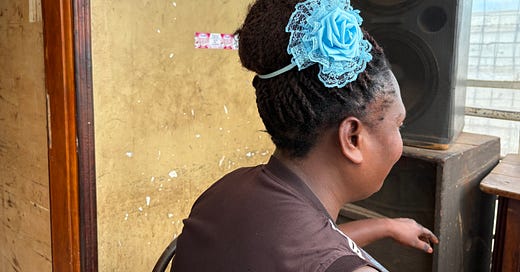Testimonies
Introducing a living archive built from interviews with those most affected as Trump abandons the global AIDS response
For the past three months, I have been reporting from the communities suddenly imperiled by the Trump administration’s retreat from the global AIDS response. Today I am launching Forsaken, a living archive that collects their stories.
Meet Enid K. A sex worker in Uganda’s capital, Kampala, she is living with HIV. She’s taken her treatment for years without issue. Then, in late January, President Trump abruptly halted all global HIV programs relying on U.S. funds. Enid’s clinic temporarily shut down and she ran out of medicine.
This is the longest I have gone without ARVs. It was for two months, from January. I was worried. I even started taking alcohol. I was thinking that anytime I am going to die. It was that life of hopelessness.



Let me also introduce you to Florence Amito. She runs an HIV treatment clinic in Gulu, a city in northern Uganda. Most of her patients are poor and elderly and live in remote locations. Fortunately, the U.S. government was supporting a team of health workers who regularly delivered medicines to them. The Trump administration canceled that service. When we met last month, Amito had just gotten a troubling call.
One told me that there are five who have gathered in one home. They don’t have any medication with them. They are trying to mobilize funds within themselves to try and maybe send one. But they have not yet realized the money. Because these motorcycles from there to here is 50,000 [Ugandan shillings]. It is five hours, because the roads are bad.
For the want of about $14, five people are at risk of defaulting on their HIV treatment.
I’d also like you to meet Shakilah, a former injection drug user who fought for a spot in Kampala’s first clinic offering medically assisted therapy. Thanks to a daily dose of methadone, she kicked her habit. But Trump’s order shut down her clinic and she is battling withdrawals so severe she might go back to using — and the risk of infection that comes with injection drug use.
The only option now is to use again. A number of people have gone back into using, which is terrible.
Through these interviews with the people most affected, I want to detail the actual impact on people’s lives of the Trump administration’s inexplicable and abrupt global HIV policy and funding decisions. Forsaken is an attempt to allow people to explain how they are grappling with the loss of programs they have spent two decades helping to build, even as they try to salvage what they can.
These are the witnesses to and the casualties of the Trump administration’s ongoing disruption of an unprecedented global health response. A response that has saved millions of lives, including the lives of many of the people I have interviewed. Forsaken is their testimony.
I am launching Forsaken with 21 interviews that I have conducted since February. There will be many more to follow as I continue to report from the countries most affected by this crisis. You can read the interviews individually, or on a timeline that helps contextualize each conversation by placing it alongside the ongoing shifts in U.S. global HIV funding and policy. All of this was designed and built by the incomparable Stefan Zeuner.
I am also launching an Instagram account to offer snapshots of the latest interviews. This newsletter will also continue, drawing on these ongoing conversations to deepen my analysis of the fallout of the Trump administration’s retreat from the fight to end AIDS. I hope you will share both the newsletter and the archive, so that there might be some accounting for the loss that has already occurred and greater awareness of the uncertainty that now lies ahead.




